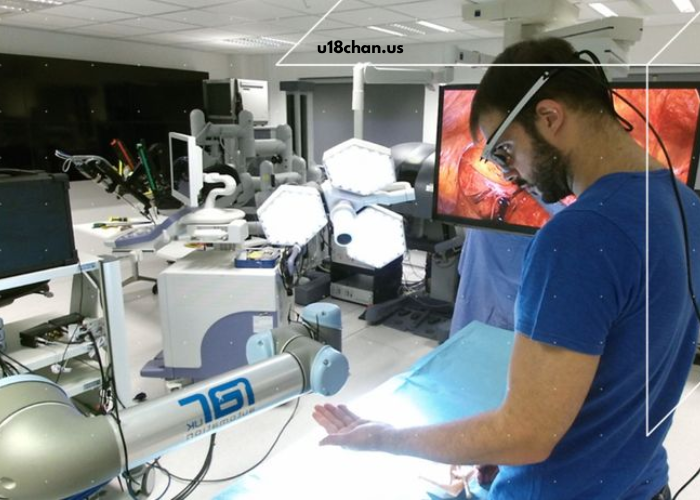The rapid pace of technological evolution continues to reshape our lives, and 2025 is set to usher in groundbreaking advancements across various sectors. From artificial intelligence (AI) to the Internet of Things (IoT), the technology landscape is on the brink of transformation. As businesses, governments, and consumers alike strive to keep up with these innovations, understanding what trends will dominate the next few years is crucial. In this article, we will explore the key tech innovations that will shape the world in 2025 and beyond.
1. Artificial Intelligence (AI) and Machine Learning
The Rise of Autonomous Systems
Artificial Intelligence (AI) has been a significant player in the tech scene for years, but in 2025, AI will reach new heights. Machine learning, deep learning, and neural networks are set to power smarter and more autonomous systems. These advancements will enable machines to make decisions, predict outcomes, and even handle complex tasks without human intervention.
Self-driving cars will become more common, with improvements in AI making them safer and more reliable. Additionally, AI will be integrated into a wide range of industries, from healthcare, where it will assist in diagnostics and treatment planning, to finance, where it will enhance predictive analytics and algorithmic trading.
AI in Personal Assistants
Virtual assistants, like Siri, Alexa, and Google Assistant, will evolve significantly by 2025. AI will enable these assistants to understand context more effectively and engage in more nuanced conversations. They will become more proactive, anticipating user needs and automating tasks to improve efficiency. These intelligent systems will also play a crucial role in managing smart homes, healthcare applications, and even workplace productivity.
2. 5G Connectivity and the Internet of Things (IoT)
A Faster, More Connected World
By 2025, 5G will be the dominant wireless technology, offering ultra-fast internet speeds and significantly reduced latency. This new generation of mobile networks will revolutionize the way we connect and interact with the world around us. IoT devices, which have already seen massive adoption in recent years, will thrive in a 5G-enabled world. The increased bandwidth and lower latency will support the seamless connectivity of billions of devices.
In smart cities, 5G and IoT will enable real-time data processing, leading to better traffic management, improved public services, and enhanced energy efficiency. In healthcare, IoT devices will allow for continuous monitoring of patient health, leading to more personalized and efficient care.
IoT in Consumer Products
From smart refrigerators to connected wearables, IoT-enabled consumer products will be ubiquitous by 2025. These devices will not only improve convenience but also enhance user experiences. For example, wearable fitness trackers will go beyond basic activity monitoring and offer personalized health insights, while smart home devices will adapt to your preferences, learning from your daily habits to optimize energy consumption and security.
3. Quantum Computing
Unlocking New Potential in Computing Power
Quantum computing represents one of the most exciting and disruptive tech innovations of the coming decade. Although still in its early stages, quantum computing is expected to make significant strides by 2025. Unlike classical computers, which rely on bits to process information, quantum computers use qubits, allowing them to perform calculations at unprecedented speeds.
In fields like cryptography, quantum computing could revolutionize data encryption, creating virtually unbreakable security systems. In pharmaceuticals, quantum simulations could drastically reduce the time and cost of developing new drugs by accurately modeling complex molecular interactions. Furthermore, quantum computing could help solve optimization problems that are currently beyond the capabilities of classical supercomputers, benefiting industries ranging from logistics to finance.
Quantum Supremacy in Key Industries
By 2025, quantum computing could be playing a central role in industries such as artificial intelligence, materials science, and climate modeling. For example, researchers could use quantum algorithms to develop new materials with specific properties, accelerating innovation in industries like renewable energy, aerospace, and electronics. Additionally, quantum-powered AI could lead to even more powerful machine learning models capable of solving problems that were previously deemed unsolvable.
4. Extended Reality (XR)
The Fusion of Virtual, Augmented, and Mixed Realities
Extended Reality (XR), which encompasses Virtual Reality (VR), Augmented Reality (AR), and Mixed Reality (MR), is poised to transform entertainment, education, healthcare, and more by 2025. While VR has already made waves in the gaming industry, the coming years will see the technology expand into other sectors, including remote work, social interaction, and entertainment.
By 2025, VR could be fully integrated into mainstream education, allowing students to experience immersive, hands-on learning environments. AR, on the other hand, will enhance the retail and e-commerce experience by providing customers with virtual try-ons and interactive product visualizations. Mixed Reality, combining the best of both VR and AR, will redefine collaborative workspaces and transform industries like manufacturing and design.
AR and VR in Healthcare
In healthcare, XR technologies will significantly improve medical training, patient care, and remote consultations. Surgeons could use AR to overlay critical data during operations, enhancing precision and reducing risks. Patients might also benefit from VR therapies for pain management and mental health treatments. Moreover, remote consultations using VR will enable doctors to engage with patients across the globe, improving access to healthcare in underserved areas.
5. Biotechnology and Healthcare Innovations
Personalized Medicine and Gene Editing
Advances in biotechnology are set to redefine healthcare by 2025, with significant breakthroughs in personalized medicine, gene editing, and regenerative treatments. The integration of AI in genomics will enable the identification of genetic mutations and predispositions, leading to more effective personalized treatments.
Gene editing technologies like CRISPR will play a pivotal role in the treatment of genetic disorders, enabling the precise alteration of DNA to cure diseases. Furthermore, regenerative medicine, which focuses on repairing or replacing damaged tissues and organs, will become more accessible, offering hope for patients with chronic conditions or injuries that are currently untreatable.
Wearable Health Devices
The growing popularity of wearable health devices, such as smartwatches and fitness trackers, will continue to rise in 2025. These devices will offer even more advanced health monitoring capabilities, such as continuous glucose monitoring, blood pressure tracking, and even early detection of potential health issues like heart attacks or strokes. With AI-driven insights, these wearables will empower users to take a proactive approach to their health and wellness.
6. Robotics and Automation
The Future of Work and Manufacturing
Robotics and automation will continue to revolutionize industries like manufacturing, logistics, and healthcare. By 2025, robots will be able to perform increasingly complex tasks, such as delicate surgery, precision manufacturing, and even customer service. These robots will not only reduce human error but also increase efficiency and productivity.
In the workplace, automation will play a significant role in streamlining operations, from administrative tasks to data analysis. While this will certainly improve productivity, it may also lead to shifts in the job market, as humans and robots collaborate to achieve greater outcomes.
Autonomous Drones and Delivery Systems
Drones have already begun to transform industries like logistics and agriculture, and by 2025, autonomous delivery drones will be commonplace. These drones will revolutionize e-commerce by enabling fast, efficient, and contactless delivery services. Furthermore, drones will play a key role in disaster relief efforts, offering a fast way to deliver supplies to remote or disaster-stricken areas.
7. Sustainable Technology
Green Tech and Renewable Energy
Sustainability will be at the forefront of tech innovations in 2025, as climate change and environmental concerns continue to drive the demand for green technologies. Solar energy, wind power, and energy storage systems will become more efficient and cost-effective, helping to accelerate the global transition to renewable energy sources.
Electric vehicles (EVs) will become more mainstream by 2025, with advances in battery technology and charging infrastructure making them more affordable and practical. Smart grids, powered by AI and IoT, will enable more efficient distribution of electricity, ensuring that renewable energy sources are utilized effectively.
Circular Economy and Waste Reduction
In addition to renewable energy, technologies aimed at reducing waste and promoting a circular economy will see significant advancements. Innovations like waste-to-energy systems, advanced recycling technologies, and biodegradable materials will help reduce environmental impact and support sustainable production and consumption patterns.
Conclusion
The technological innovations we will witness in 2025 promise to be transformative across a wide range of industries. AI, quantum computing, XR, biotechnology, robotics, and sustainable tech will not only drive economic growth but also improve the quality of life for people around the world. While there are challenges to overcome, such as ethical considerations and potential job displacement, the benefits of these innovations will far outweigh the risks, paving the way for a more efficient, connected, and sustainable future.
As we look ahead, it is clear that the future of technology is incredibly exciting. The trends outlined in this article are just the beginning of a new era where innovation continues to push the boundaries of what is possible. For businesses, entrepreneurs, and consumers alike, staying informed and adapting to these changes will be essential to thriving in this rapidly evolving landscape.




